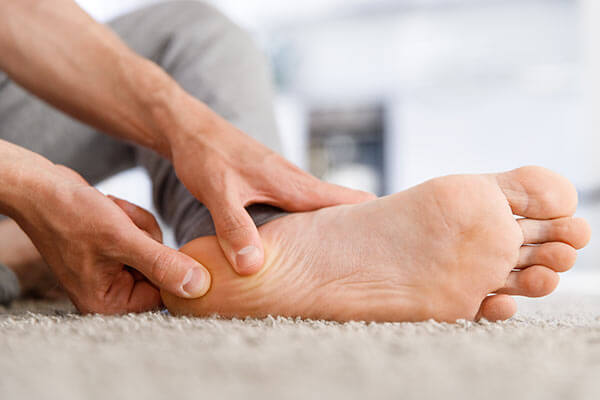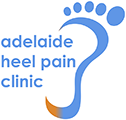Is persistent heel pain interfering with your daily routine, exercise, or work? Plantar fasciitis might be the reason.


What is Plantar Fasciitis?
The plantar fascia is a crucial band of tissue running along the sole of your foot, connecting the heel to the toes and forming the arch. When inflamed, a condition known as plantar fasciitis can develop, often resulting in intense heel pain.
At the Adelaide Heel Pain Clinics near Hazelwood Park, heel pain is the most frequently seen condition, with approximately 50 cases of plantar fasciitis treated each day. Although common, this condition requires immediate attention. Research shows that 50% of those affected still experience symptoms after five years, and 45% continue to suffer after ten years. Early intervention from a podiatrist is vital to prevent years of ongoing pain.
Symptoms of Plantar Fasciitis
Heel pain is the primary symptom of plantar fasciitis, often felt as a sharp, stabbing pain near the bottom of the heel. Patients frequently notice that the pain is worst in the morning when they first get out of bed or after extended periods of inactivity. Additional symptoms may include soreness in the foot’s sole, swelling, limping, and tenderness to the touch.


What Causes Plantar Fasciitis
Plantar fasciitis occurs when excessive pressure and strain on the plantar fascia lead to inflammation and irritation, resulting in heel pain. This inflammation can often be triggered by strenuous activities like running, dancing, or gymnastics, which place significant stress on the heel bone. Other risk factors include weight gain, ageing, pregnancy, spending extended periods on your feet, or having flat feet or high arches.

Ultimate 7 Step Checklist to Heal Your Morning Heel Pain
Tired of Limping?
Book an Appointment to Treat Your Heel Pain Today!
Treatment of Plantar Fasciitis
Adelaide Heel Pain Clinics handle dozens of plantar fasciitis cases daily, offering expert care for heel pain of all levels. Our comprehensive treatment options allow us to create personalised care plans suited to your specific needs, helping you find relief and get back to your daily routine.
At Adelaide Heel Pain Clinic, we offer high-quality plantar fasciitis treatment to patients from North Adelaide, Eastwood, Parkside, Glenside, Frewville, Fullarton, Highgate, Myrtle Bank, Brompton, Prospect, Walkerville, Unley, St Peters, Norwood, Thebarton, Mile End, Glenunga and surrounding suburbs.

Radial Shockwave Therapy
Offering no long-term side effects and requiring zero recovery time, radial shockwave therapy is a reliable treatment for heel pain. We commonly use this therapy to help patients manage different types of heel pain effectively.

Focal Shockwave Therapy
Our clinic houses South Australia’s only focal shockwave therapy machine, one of just a few available in the country. This advanced treatment offers a cutting-edge approach to relieving heel pain.

Dry Needling
Dry needling is a highly regarded technique for releasing tight muscles. By using small acupuncture needles, we can target trigger points effectively to help alleviate muscle pain.

Orthotics
With custom orthotics, you can enjoy individualised support and comfort in any shoe. These orthotics are designed specifically for your foot structure and needs.

Low-Level Cold Laser
Low-level cold lasers offer a less painful alternative to traditional hot lasers. As a breakthrough technology in podiatry, this treatment could be the ideal solution for your needs.

Exercise Rehabilitation
Why settle for a one-size-fits-all approach? A podiatrist can create a personalised exercise rehabilitation plan tailored to your pain, health, and goals, offering remarkable benefits for your recovery.
Common Questions About Plantar Fasciitis – Answered
How are plantar fasciitis and heel spurs different?
No, they’re not the same. Although they share similar symptoms, plantar fasciitis is caused by inflammation of the ligament, while heel spurs are bony growths that develop on the heel bone.
What are the most supportive shoes for plantar fasciitis?
The best shoes for plantar fasciitis depend on your daily activities and specific foot requirements. There’s no universal solution, so it’s important to work with a podiatrist to find the right support for your needs.
Should I avoid walking or running with plantar fasciitis?
Taking time off from high-impact exercises like running is crucial for proper plantar fascia recovery. Nevertheless, maintaining physical activity is important—try low-impact exercises such as swimming to avoid worsening your heel pain.
Can plantar fasciitis run in families?
No, plantar fasciitis isn’t hereditary. There’s no evidence of a genetic connection, meaning it isn’t passed down from your parents.
What kind of pain is associated with plantar fasciitis?
Plantar fasciitis pain is typically described as a sharp, stabbing sensation near the heel, affecting the bottom of the foot. It’s usually most severe with the first steps after getting up in the morning or following prolonged sitting or standing.
When is it time to see a podiatrist for plantar fasciitis?
You shouldn’t delay seeking treatment for heel pain. If you’re experiencing any discomfort, it’s best to consult a podiatrist as soon as possible.
Can compression socks relieve plantar fasciitis pain?
Yes, compression socks can be beneficial for plantar fasciitis. They provide support for the arches and ankles, helping to limit mobility and improve alignment. For personalised advice on managing your pain, it’s best to consult with a podiatrist.
Why is heel pain from plantar fasciitis worse when I wake up?
The plantar fascia shortens during long periods of inactivity, such as sleeping or sitting for extended periods. When you start moving again, stretching the tightened tissue can lead to increased pain, especially in the morning.

Book Online in less than 60 Seconds
Join over 20,000 South Australians who are now pain free!
